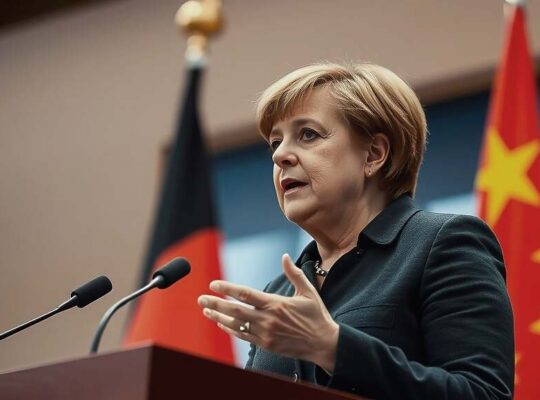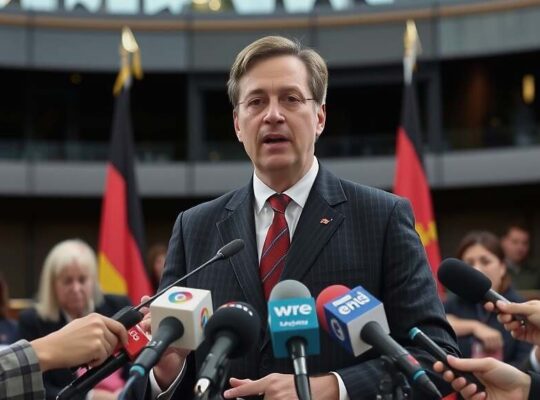Chancellor Friedrich Merz of the Christian Democratic Union (CDU) is reportedly planning a visit to Israel in December, signaling a potential shift in Germany’s posture towards its key ally amidst growing internal and international pressure. According to sources cited by “The Times of Israel”, the trip, tentatively scheduled for December 6th and 7th, will include a meeting with Prime Minister Benjamin Netanyahu and a visit to the Yad Vashem Holocaust memorial.
This visit would mark the first by a leader of a major European nation to Israel in over a year, a period punctuated by escalating tensions and a deeply divisive conflict. Germany’s longstanding and substantial military backing of Israel has faced increasing scrutiny in recent months, fueled by the significant civilian casualties and humanitarian crisis unfolding in Gaza. This has ignited calls for a more assertive response from Berlin, particularly within the German populace.
The recent suspension of certain arms deliveries to Israel in August, following Israel’s decision to advance on Gaza City, highlighted the growing disquiet within the German government. While Germany remains Israel’s second-largest arms exporter, trailing only the United States and its most significant supporter within the European Union, the decision to pause shipments underscored a delicate balancing act.
Reports suggesting Berlin’s intention to lift the suspension of some arms sales on Monday, following a fragile ceasefire agreement for Gaza, further complicate the situation. The ceasefire’s precarious nature raises questions about the timing and messaging of the move, prompting criticism that it risks appearing to prioritize continuity in arms exports over addressing the ongoing humanitarian concerns.
The visit itself is expected to be laden with political significance, requiring Merz to navigate a complex landscape where unwavering support must be tempered by growing demands for accountability and a critical assessment of the consequences of German arms exports in the context of the evolving conflict. The trip offers a pivotal opportunity to redefine the parameters of the German-Israeli relationship, demanding a nuanced approach that addresses both strategic interests and mounting ethical considerations.












